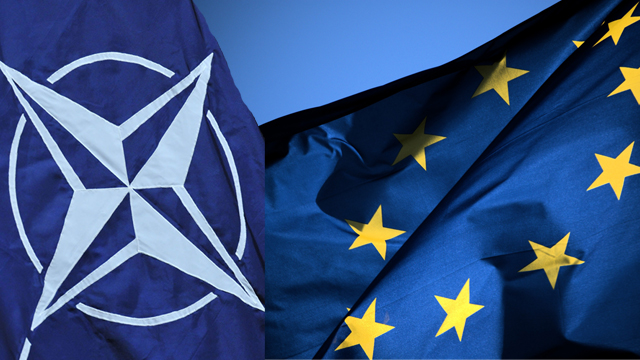NATO reiterates its full support to EU efforts in Kosovo
NATO’s Assistant Secretary General for Operations, Tom Goffus, joined Mr. Stefano Tomat, Civilian Operations Commander at the European Union External Action Service, in separate meetings with the chief negotiators of Belgrade and Pristina. The meetings took place in the margins of the EU-facilitated Dialogue hosted by the EU Special Representative for the Belgrade-Pristina Dialogue and other Western Balkans issues, Mr. Miroslav Lajcak.

The Assistant Secretary General for Operations discussed the security situation in Kosovo and addressed security concerns on the potential opening to road traffic of the Ibar River Bridge in Mitrovica. Mr. Goffus stressed the need for an inclusive and lasting solution. He pointed out that “decisions must be taken through dialogue, in timely and effective coordination with the International Community, and in way that does not put at risk the security of local communities or of NATO troops.” He added that “the NATO-led KFOR mission is bound by its UN mandate to address any security concerns and ensure a safe and secure environment.” KFOR maintains its fixed presence on the bridge and continues to conduct regular patrols in the surrounding areas.
Mr. Goffus reiterated NATO’s full support to the EU-facilitated dialogue for the normalisation of relations between Belgrade and Pristina. This is the framework to resolve outstanding issues and reach solutions that respect the rights of all communities, which is key to lasting security in Kosovo and to stability across the Western Balkans.
KFOR continues to implement its mandate – based on UN Security Council Resolution 1244 of 1999 – to contribute to a safe and secure environment for all people and communities living in Kosovo and freedom of movement, at all times and impartially. KFOR and the EU Rule of Law (EULEX) mission maintain close coordination, in their respective roles as security responders.
NATO has a long standing cooperation with the European Union and will continue to cooperate closely in support to regional stability.
